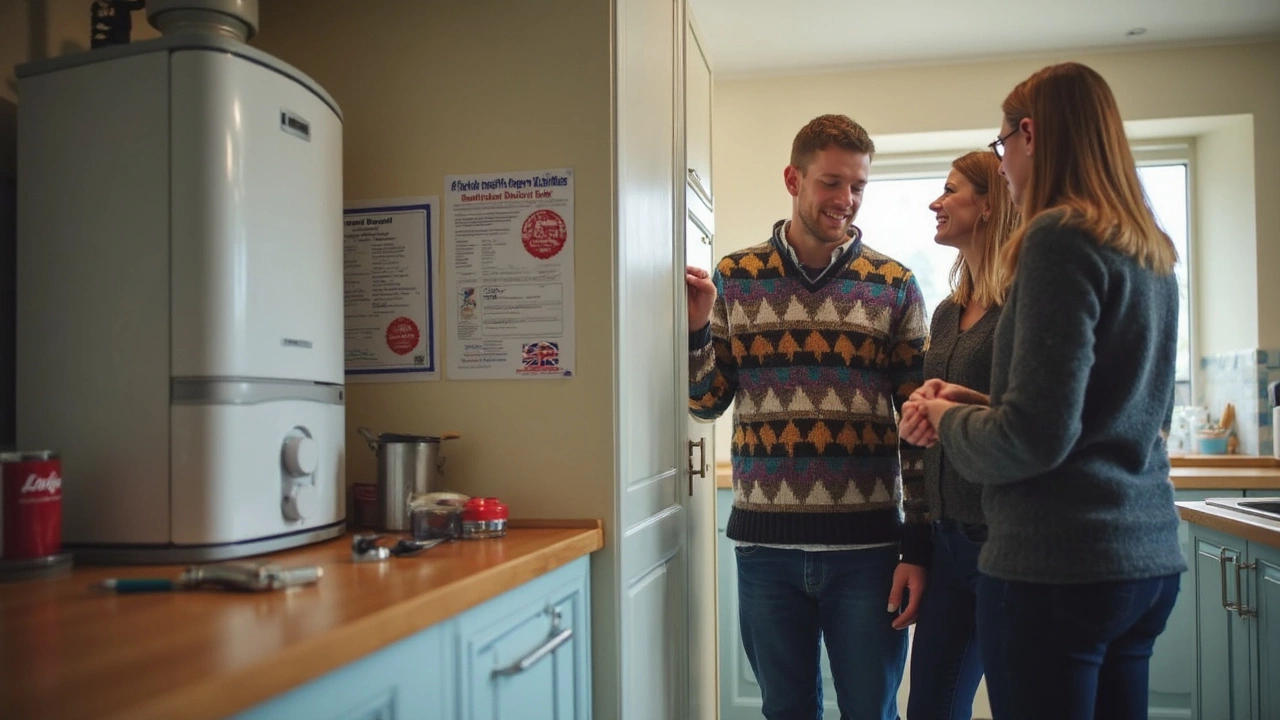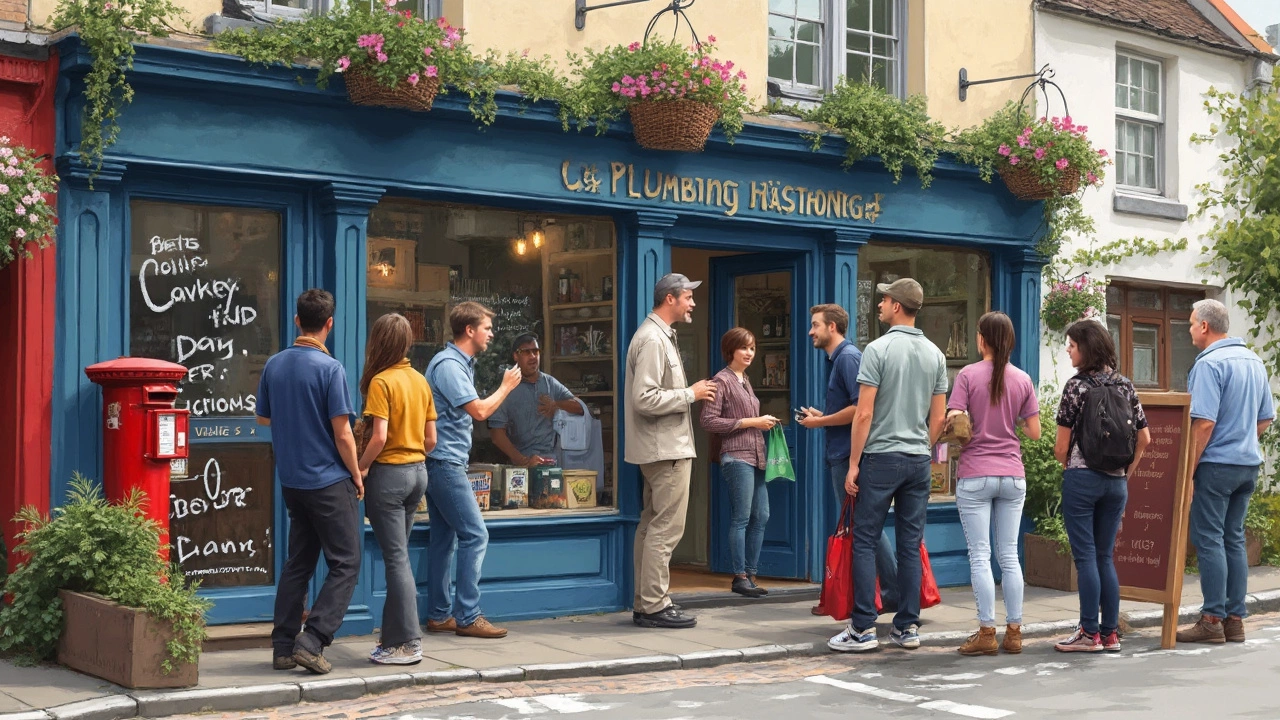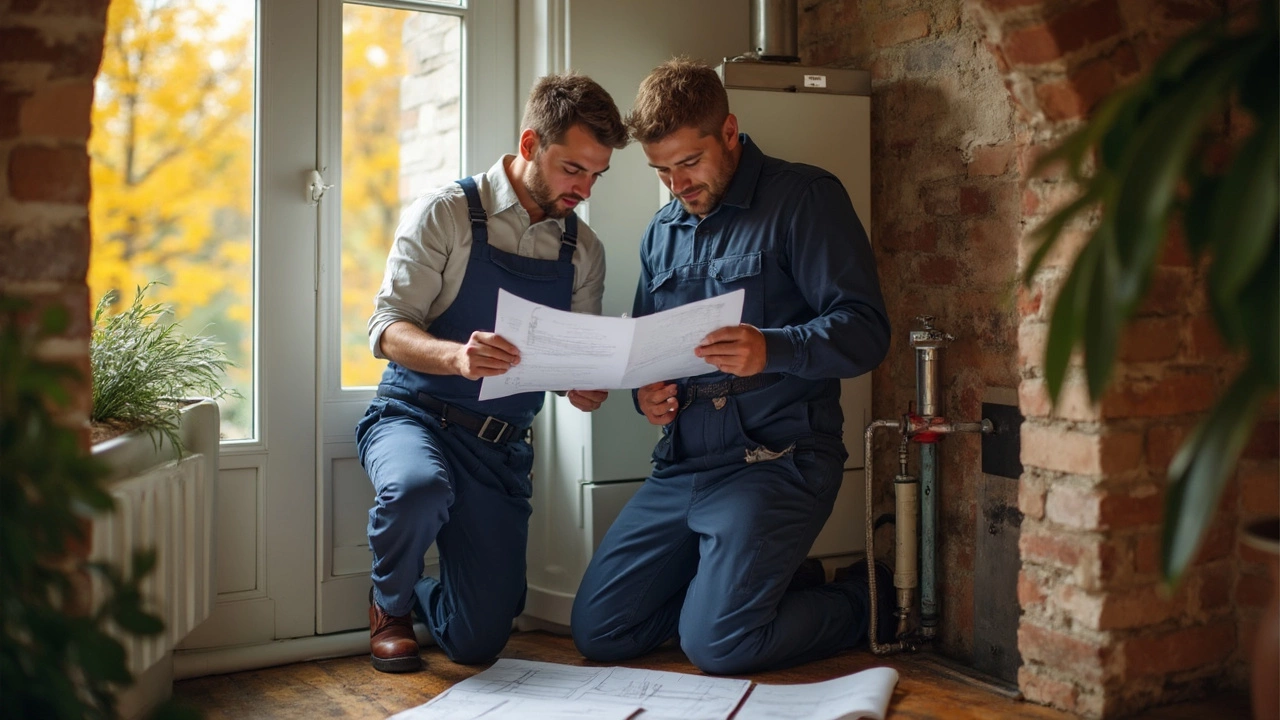Nothing triggers household panic quite like cold showers in the middle of a Wellington winter. You might be standing in your hallway shivering, looking at that ancient hunk of metal you call a boiler, and wondering: should I call a plumber, or is a boiler a different beast? The truth is a bit more interesting than you’d think. Let’s peel back the curtain on who really puts in boilers, what the job involves, and the smart moves you can make as a homeowner when your boiler finally gives up the ghost.
Who Installs Boilers: Plumber, Gasfitter, or Heating Engineer?
People often lump every pipe-related problem into the world of plumbers. But boilers occupy this curious bit of territory where plumbing, gas, and specialist heating knowledge all collide. So here’s the first reality check: not every plumber is legally allowed to install boilers, especially gas boilers. In New Zealand, the law is pretty clear—if your boiler runs on gas, anyone who fits or repairs it must hold a current gasfitting license. You can check someone’s credentials online through the Plumbers, Gasfitters and Drainlayers Board. This protects you, your house, and, honestly, your whole street from potential gas disasters.
Electric boilers stretch the rules a little further. Some skilled plumbers who have diversified into heating systems may work on them, but certified electricians are typically required for the wiring itself. Traditional plumbers might only play a part—upgrading pipes, moving radiators, or dealing with the wet work. Modern heating engineers, on the other hand, are specialists who sit somewhere between the traditional plumber and an HVAC expert. They not only install boilers—they’ll also design whole heating systems, calculate your home’s heat load, and ensure everything runs both efficiently and legally. So, while your local plumber might swap parts or service radiators, complex boiler install? That’s a job for someone with both plumbing and gasfitting tickets, and ideally heaps of experience.
The rules aren’t just about paperwork—different systems need different skills. Gas boilers mean handling fire, pressure, and potentially poisonous byproducts. Electric boilers bring electrical risks. Water pressure, system balance, and condensation disposal all mix in. There’s a lot of crossover between plumbing and heating, so most modern firms have cross-trained teams: at least one gasfitter, one electrician, and one plumber. It’s why the best advice—if you want a new boiler—usually starts with finding an outfit that’s transparent about who does what.
The Complex Process of Installing a Boiler
Boiler installation isn’t just a matter of swapping out a box and plugging in some hoses. It’s detailed work, and each step matters for your comfort, safety, and power bill. First off, the installer needs to survey your home. That means looking at pipe sizes, insulation levels, how many people live there, and—crucially—how you use heat. Should that new boiler run radiators throughout the house? Just supply hot water? Or do both, and switch seamlessly?
Here’s how a typical installation unfolds. The team starts by shutting off the water and, for gas, making sure all valves are closed. Old boilers can weigh well over 100 kg and sometimes lurk in surprising places: high cupboards, nooks under stairs, dusty corners in garages. Removing them safely can be its own project. Once the space is cleared, they’ll assess if upgrades are needed. Maybe your pipes are too narrow, or the old flue isn’t up to code for venting carbon monoxide outside. In Wellington, with our famously changeable weather, proper insulation and frost protection matter hugely—nobody wants a frozen pipe in July!
New gas lines sometimes have to be run from scratch, especially in homes built before the late ‘80s. The wiring for electric ignition, smart thermostats, and safety sensors means electricians step in, double-checking every connection. Only at this point does the main event begin: connecting the boiler, sealing all joints, pressure testing, and purging air from the system. The first fire-up is always a moment—installers check for leaks, test the ventilation, and tweak the controls while watching the pressure gauges like hawks. There’s paperwork after all this, by the way: certified installs must come with a Certificate of Compliance, proof the work is safe, legal, and ready for council inspections.
See how this isn’t a job for one person in a hurry? Fortunately, Wellington has strict building and gas safety standards, but you’re within your rights to ask to see every relevant license and sign-off. DIY, by the way, is out of the question here—besides the legal stuff, those YouTube tutorials don’t prepare you for all the unexpected bits (or the fines if anything goes wrong).

Different Boiler Types and What They Mean for Installation
You’ve probably heard friends or family in Wellington argue over combi vs system boilers, but choosing a new boiler isn’t just buzzwords—it decides what needs doing during installation. The three main types you’ll hear about:
- Combi boilers: These compact units don’t need a hot water tank. They heat water instantly, which means less space, fewer pipes, and often a faster install.
- System boilers: Great for homes with lots of radiators or high hot water demand. They need a separate hot water cylinder, so the install can get more involved—running supply lines to the tank, installing insulation, and making sure the whole system balances properly.
- Conventional boilers: Old-school, often called “heat only.” They need both a cold water tank (usually in the roof space) and a hot water cylinder. That means a much more complex plumbing network and sometimes extra structural work.
Modern boilers are built safer and smarter, but this also makes it harder for the average plumber to just “wing it.” For example, a combi boiler must be sized exactly right—too small, and your showers will run cold when someone washes up; too big, and you waste power (plus money). System balancing, pressure settings, and advanced controllers are now expected. Even getting rid of your old unit, which sometimes contains hazardous materials like asbestos (older models, especially), takes specialist disposal and care. You wouldn’t want to cut corners when you learn what’s inside some legacy units.
Don’t forget, if you go for a heat pump style boiler (they’re gaining traction with eco-conscious Wellington families), you bring new installation quirks: external units, refrigerant lines, and careful calculations about airflow and placement. For any new installation, your installer should walk you through a detailed heat-loss survey to match the right type, not just drop in the biggest or priciest box in the shop.
How Much Does Boiler Installation Cost in Wellington?
This is where most people clutch their wallets. Boiler cost ranges aren’t as wild as you might think, but the devil’s in the details. The table below, based on recent Wellington data (and some extra notes from a friend who runs a heating company in Kilbirnie), shows what you’re realistically looking at.
| Type of Boiler | Typical Installed Cost (NZD) | Time to Install | Notes |
|---|---|---|---|
| Combi Boiler | $4,500 - $7,000 | 1-2 Days | Quicker, less piping, easy swap if existing combi system |
| System Boiler | $5,000 - $9,000 | 2-4 Days | New cylinder or conversion needed, more labor |
| Conventional Boiler | $5,500 - $10,000 | 2-5 Days | May need new tanks, more pipework, suitable for older homes |
| Heat Pump Boiler | $8,000 - $14,000 | 3-6 Days | Rebates may apply; higher initial cost, lower running cost |
Labour eats up a good chunk of those numbers—expect at least half the cost on the install itself, given the number of different trades involved. Add-ons like smart thermostats, zone controls, and insulation upgrades hike the price, but can pay off in lower energy bills. Also, factor in disposal of the old boiler. Some firms offer this free, others might sting you with a $200-$500 disposal charge, especially if asbestos is found.
Wellington has a mix of homes—some 80 years old, others shiny and modern. Older places often mean surprises (extra pipework, awkward access, thicker walls). We had our boiler swapped two years ago, and, not kidding, the team found a virtually fossilized bird’s nest inside the old flue. Unexpected extras like removing blockages or rerouting pipes can add a day or more and $500-$1,500 to your bill. Always ask for a clear, itemized quote before work starts. If it looks too good to be true, it probably is.

Pro Tips: Avoiding Common Boiler Installation Mistakes
Boiler installs get derailed more often than you’d think. Avoid classic pitfalls with these tried-and-true tips (some learned the hard way, others pinched from Lydia’s uncle, who’s a legend in Wellington plumbing):
- Always check credentials—ask to see both the plumber and gasfitter registrations. It’s your right.
- Insist on a proper heat loss calculation, not a guess based on your old boiler. Efficiency matters, especially with Wellington’s energy prices climbing.
- Survey your home’s insulation—the best boiler in the world can’t offset heat loss through dodgy windows or uninsulated pipes.
- Review the warranty and make sure you get a Certificate of Compliance when the job’s done. If you sell your house, future buyers will ask.
- If you’re thinking about future-proofing, discuss heat pump compatibility. Some new systems let you easily upgrade as tech and rebates improve.
- Always budget for contingency—the average Wellington install has at least one “surprise.” Old pipes, weird wiring, hidden nests… something always turns up!
- Don’t get wowed by fancy digital displays. The real value is efficiency ratings, reliable brands, and local service backup.
- Ask your installer about ongoing service—some firms offer annual checks bundled with installation. Peace of mind for those cold, stormy nights.
- Plan for downtime. The house will get chilly, so schedule installs outside your busiest shower/cleaning routines or when you can escape to a mate’s place for a day.
And just a heads-up: keep your pets and young kids out of the work zones. Nothing slows things down more than trying to rescue a nosy puppy from the crawl space. Your installer will appreciate it, trust me.
If you remember one thing only, let it be this: do plumbers put in boilers? Sometimes, yes, but only when they’re properly licensed and teamed up with experienced gasfitters or electricians. It’s teamwork, careful planning, and a bit of local know-how that turns a messy old job into warm showers and cozy houses—even when the southerly wind starts howling down Evans Bay. Don’t be shy with questions, get things in writing, and the job will go a whole lot smoother. Stay warm!

I am an expert in the services industry with a focus on appliance repair. My passion lies in understanding how things work and educating others in simple, engaging ways. This enthusiasm fuels my writing, where I delve into topics around appliance maintenance and troubleshooting. I aim to make these subjects clear and accessible to all readers.